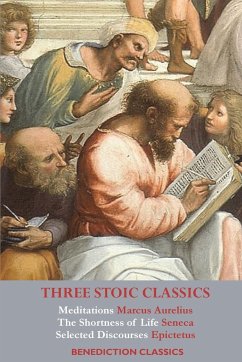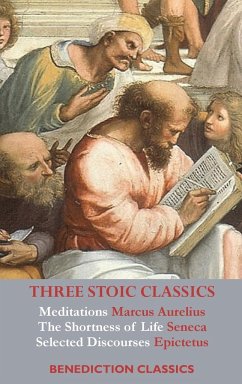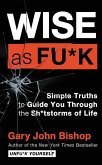"The happiness of your life depends upon the quality of your thoughts." ¿ Marcus Aurelius "You have power over your mind - not outside events. Realize this, and you will find strength." ¿ Marcus Aurelius "So it is: we are not given a short life but we are wasteful of it... Life is long if you know how to use it.¿ Seneca "We must indulge the mind and from time to time allow it the leisure which is its food and strength." ¿ Seneca "Don't explain your philosophy. Embody it." ¿ Epictetus "First say to yourself what you would be; and then do what you have to do." ¿ Epictetus Three Stoic Classics contains three vital works introducing this life-changing philosophy. The Shortness of Life is a succinct call to the pursuit of philosophy, which leads to wise choices and the full life: "Of all men they alone are at leisure who take time for philosophy; they alone really live." Seneca offers piercing and profound insights into human nature, and a vision of the good life, summarised in his aphorism, "Life is long, if you know how to use it." Seneca elucidates many of the principles of modern productivity manuals, including the wise valuing of time: "People are frugal in guarding their personal property; but as soon as it comes to squandering time they are most wasteful of the one thing in which it is right to be stingy," intentionality, and rest and recreation: "We must go for walks out of doors, so that the mind can be strengthened and invigorated by a clear sky and plenty of fresh air. At times it will acquire fresh energy from a journey by carriage and a change of scene, or from socializing and drinking freely." Epictetus' Selected Discourses is a longer meditation on the sixty principles important to pursuing the Stoic Life. Beginning with the foundational principle: the difference in how we relate to the things under our control (our acts, thoughts, and desires) and those not under our control (our possessions, position, reputation), Epictetus's discourses cover topics including: How to maintain one's character in all circumstances, Friendship, Contentment, Anxiety, and On Dealing with Tyrants. Meditations is a life-changing book. It contains the private meditations of the most powerful man in the Roman world, the Emperor Marcus Aurelius, as he wrestled with the complexities of his life using the wisdom of Stoic Philosophy. Meditations is written in lucid, accessible language and, interestingly, we see that the problems and perplexities of this philosopher-King are much like ours. Marcus Aurelius was impressively able to live out his philosophical ideals-such as the importance of gratitude, mindfulness, simplicity and life-long learning, of seizing the day, and of remembering the shortness of life-while administering the Roman Empire. Stoic philosophy is, above all, practical. It uses reason and the careful observation of human life to address the problems of daily life. It is also universal-the emperor Marcus Aurelius and the freed slave Epictetus are both leading Stoic philosophers; indeed, Marcus Aurelius carefully studied the works of Epictetus. In recent years, Stoic philosophy has provided vital life lessons to people in all spheres of life. Indeed, modern Stoic thought "hold[s] fascinating promise for business and government leaders tackling global problems in a turbulent, post-recession slump," (Forbes). Three Stoic Classics is an indispensable guide to Stoic philosophy.








